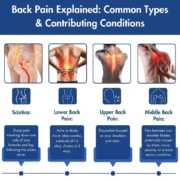Workplace Wellness: Promoting MSK Health in the Office
Our musculoskeletal (MSK) system – our bones,muscles,tendons,ligaments,and nerves – allows us to move,work,and enjoy life. But spending long hours at a desk can take a toll on our MSK health, leading to pain, stiffness, and even injury. This article provides practical tips to create a healthier and more ergonomic workspace, promoting well-being and preventing common MSK problems.
Understanding the Risks of office Work
Many office jobs involve repetitive movements, prolonged static postures, and awkward positions, all of which can strain our MSK system. Common problems include:
Carpal Tunnel Syndrome: Pressure on the median nerve in the wrist, causing numbness, tingling, and pain in the hand and forearm.
Neck Pain: poor posture, prolonged computer use, and stress can lead to muscle strain and stiffness in the neck.
Back Pain: Sitting for extended periods can weaken back muscles and put pressure on the spine, leading to pain and discomfort.
Tendonitis: Inflammation of tendons, frequently enough caused by repetitive movements like typing or using a mouse.
Setting up Your Ergonomic Workstation
Creating an ergonomic workstation is key to preventing MSK issues. Here’s how:
Chair:
Adjustability: Choose a chair with adjustable height, backrest, and armrests.
support: ensure your chair provides adequate lumbar (lower back) support.
Posture: Sit with your feet flat on the floor or on a footrest, with your knees at a 90-degree angle.
Desk:
Height: Adjust your desk so your elbows are at a 90-degree angle when typing.
Keyboard and Mouse: Position your keyboard and mouse close to your body to avoid reaching.
Monitor Placement: Place your monitor at arm’s length and slightly below eye level to prevent neck strain.
laptop Users:
External Keyboard and Mouse: Using a separate keyboard and mouse allows for better ergonomics when using a laptop.
Laptop Stand: Elevate your laptop to eye level with a stand and use an external keyboard and mouse.
Incorporating Movement and Breaks
Staying in one position for too long can be detrimental to your MSK health. Here are some ways to incorporate movement into your workday:
Regular Breaks: Take short breaks every 30-60 minutes to stand up, stretch, and walk around.
stretching Exercises: Perform simple stretches for your neck, shoulders, back, and wrists throughout the day.
Walking Meetings: Consider having walking meetings instead of sitting in a conference room.
Take the Stairs: Opt for the stairs rather of the elevator whenever possible.
Preventing Specific MSK Issues
Carpal Tunnel Syndrome Prevention:
Wrist Rests: Use ergonomic wrist rests to support your wrists while typing.
Neutral wrist Position: Keep your wrists straight and avoid bending them up or down.
Proper Typing Technique: Use light touch and avoid pounding the keys.
Neck Pain Prevention:
Head Position: Keep your head centered over your spine and avoid forward head posture.
Phone Use: Avoid cradling your phone between your ear and shoulder.Use a headset or speakerphone instead.
Regular Neck Stretches: Perform gentle neck stretches throughout the day.
Back Pain Prevention:
Lumbar Support: Use a lumbar support cushion or roll to maintain the natural curve of your spine.
Core Strengthening Exercises: Engage in regular exercise to strengthen your core muscles, which support your back.
Proper Lifting Technique: When lifting objects, bend at your knees, not your waist.
Listen to Your Body
Pay attention to your body’s signals. If you experience pain or discomfort, take breaks, adjust your workstation, and consider consulting with a healthcare professional.
Further Resources
For more information on workplace ergonomics and MSK health, visit the following resources:
National Institute of Arthritis and Musculoskeletal and Skin Diseases (NIAMS): niams.nih.gov
* Occupational Safety and Health Governance (OSHA): osha.gov
By implementing these tips and creating a supportive work surroundings,you can protect your MSK health and enjoy a more agreeable and productive workday. Remember, prioritizing your well-being is an investment in your long-term health and happiness.









